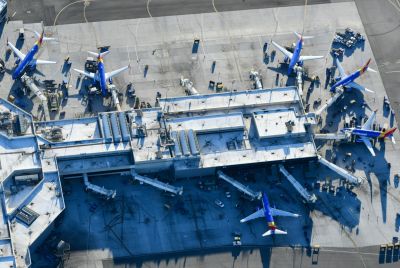Who Needs to Pay the US Visa Integrity Fee? What Brits, Canadians and Other Travellers Should Know
It is non-waivable and added to existing visa fees, such as the £137 B-1/B-2 visa cost.

Travellers heading to the United States could soon face a new visa integrity fee of at least £187 ($252), after the Trump administration signed the One Big Beautiful Bill Act into law. The legislation, designed to tighten border security and address visa overstays, introduces significant extra costs for millions of foreign visitors.
Who Must Pay the US Visa Integrity Fee?
The new fee targets most travellers who need a nonimmigrant visa to enter the US. This includes applicants for B-1/B-2 tourist and business visas, F/M student visas, H-1B/H-4 work visas, and J exchange visas. The rule is set to affect travellers from countries such as China, India, Nigeria and Brazil.
Citizens from the 42 nations in the US Visa Waiver Program (VWP), including the UK, France, Germany, Japan and Australia, will not have to pay the integrity fee. Those using the VWP can visit the US for up to 90 days with an approved ESTA instead of a visa.
Most Canadians and Bermudians are also exempt, as they generally do not need visas for short trips. However, Canadian permanent residents who are not citizens of a VWP country will have to apply for nonimmigrant visas and pay the new fee.
In a post on X (formerly Twitter), US immigration specialist Syed Anwar Wasti said: 'Starting 1 October 2025, nearly all nonimmigrant US visa applicants will pay a $250 Visa Integrity Fee. This is non-waivable and refundable only if all visa conditions are met.'
The fee is set to be reviewed regularly to keep up with inflation and will be charged on top of current visa application costs. As a result, a B-2 tourist visa could now total £325 ($438), up from the previous £138 ($186).
Starting Oct 1, 2025, nearly all nonimmigrant U.S. visa applicants will pay a $250 Visa Integrity Fee—non‑waivable, refundable only if all visa conditions are met. Exempts VWP travelers, Canadians/Bermudians, and diplomats. Critics warn it may hurt tourism & burden…
— anwarwasti (@syedanwarwasti) July 20, 2025
Why Is the Fee Being Introduced?
US authorities say the fee will support stricter enforcement of visa rules and border security, funding more staff for Immigration and Customs Enforcement (ICE) and expanding detention facilities.
A spokesperson for the Department of Homeland Security told CNBC that the new law aims to restore integrity to the US immigration system.
According to US government figures, between 2016 and 2022, about one to two percent of nonimmigrant visitors overstayed their visas. An estimated 42 percent of the country's 11 million unauthorised residents first entered the US legally and then failed to leave on time.
The fee is intended to act as a compliance bond, meaning visitors can get their money back if they follow all visa conditions, such as leaving the country before their visa expires and not working illegally.
New Fees to Take Effect in 1 October 2025
The US government aims to begin collecting the visa integrity fee from 1 October 2025, but some implementation details are still being finalised. The Department of State and the Department of Homeland Security will both play a role in rolling out the new measure.
Another immigration analyst, @ghmM_Europe, noted on 19 July 2025 that the fee applies to all nonimmigrant visa applicants, including tourists, business travellers and international students.
Travelers to the U.S. must pay a new $250 ‘visa integrity fee’ — what to know
— Pete the Northern Lad (@ghmM_Europe) July 19, 2025
Who has to pay the new fee?
The “visa integrity fee” applies to all visitors who need nonimmigrant visas, which includes tourists, business travelers and international students. https://t.co/gFmBVkM4P6
How Will Travellers Be Affected?
Many travel industry groups warn that the new fee could discourage some visitors, especially with major events such as the 2026 FIFA World Cup and America 250 on the horizon. The US Travel Association called the measure 'a giant leap backwards', with executive Erik Hansen warning that it creates 'an unnecessary financial barrier for international visitors'.
For families and groups, the added expense could be substantial. A family of four applying for B visas, for example, would face an extra cost of £750 ($1,011).
Jorge Loweree of the American Immigration Council told USA Today, 'Attaching an additional $250 fee has the very real potential to significantly reduce the number of people that can afford to do that'.
Britons who need specific nonimmigrant visas, such as the E-2 investor visa, will also see increased costs. Canadian permanent residents are among those who could be hit the hardest, raising new concerns for US-Canada relations during a period of ongoing trade tension.
With inbound tourism to the US already in decline in 2025, experts warn the new visa fee could drive travellers to choose destinations with fewer barriers and lower costs.
There are also questions about how and when refunds will be processed for those who meet all visa requirements, as US authorities have yet to release complete guidelines.
© Copyright IBTimes 2025. All rights reserved.





















